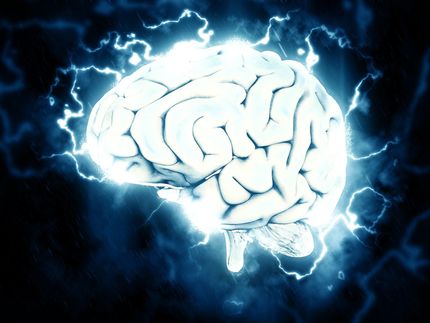Use it or lose it
Research illuminates a molecular mechanism for why a stimulating environment may protect against Alzheimer's Disease
Advertisement
"Use it or lose it." The saying could apply especially to the brain when it comes to protecting against Alzheimer's disease. Previous studies have shown that keeping the mind active, exercising and social interactions may help delay the onset of dementia in Alzheimer's disease.
Now, a new study led by Dennis Selkoe, MD, co-director of the Center for Neurologic Diseases in the BWH Department of Neurology, provides specific pre-clinical scientific evidence supporting the concept that prolonged and intensive stimulation by an enriched environment, especially regular exposure to new activities, may have beneficial effects in delaying one of the key negative factors in Alzheimer's disease.
Alzheimer's disease occurs when a protein called amyloid beta accumulates and forms "senile plaques" in the brain. This protein accumulation can block nerve cells in the brain from properly communicating with one another. This may gradually lead to an erosion of a person's mental processes, such as memory, attention, and the ability to learn, understand and process information.
The BWH researchers used a wild-type mouse model when evaluating how the environment might affect Alzheimer's disease. Unlike other pre-clinical models used in Alzheimer's disease research, wild-type mice tend to more closely mimic the scenario of average humans developing the disease under normal environmental conditions, rather than being strongly genetically pre-disposed to the disease.
Selkoe and his team found that prolonged exposure to an enriched environment activated certain adrenalin-related brain receptors which triggered a signaling pathway that prevented amyloid beta protein from weakening the communication between nerve cells in the brain's "memory center," the hippocampus. The hippocampus plays an important role in both short- and long-term memory.
The ability of an enriched, novel environment to prevent amyloid beta protein from affecting the signaling strength and communication between nerve cells was seen in both young and middle-aged wild-type mice.
"This part of our work suggests that prolonged exposure to a richer, more novel environment beginning even in middle age might help protect the hippocampus from the bad effects of amyloid beta, which builds up to toxic levels in one hundred percent of Alzheimer patients," said Selkoe.
Moreover, the scientists found that exposing the brain to novel activities in particular provided greater protection against Alzheimer's disease than did just aerobic exercise. According to the researchers, this observation may be due to stimulation that occurred not only physically, but also mentally, when the mice moved quickly from one novel object to another.
"This work helps provide a molecular mechanism for why a richer environment can help lessen the memory-eroding effects of the build-up of amyloid beta protein with age," said Selkoe. "They point to basic scientific reasons for the apparent lessening of AD risk in people with cognitively richer and more complex experiences during life."


























































